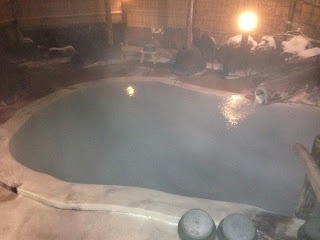Japanese newspapers usually list up the
news of the year at the end of a year. Mainichi Shimbun selected two of the
biggest news of 2017, the sweeping victory of Donald Trump and Emperor
Akihito’s announcement of abdication, followed by six events including Brexit
or postponing consumption tax hike. Most news represented sharp divisions
between the people in every corner of the world.
Trump’s victory in United States
Presidential election was one of the biggest surprises for Japanese people,
too. Negative choice of less worse of American voters was out of imagination
for the Japanese. Division between political parties, ethnicities or classes
was serious in U.S. society. The Japanese were surprised by ignorance of the
Americans on international relations, represented by Trump’s negative attitude
on maintaining alliance with Japan.
Emperor Akihito’s announcement of
abdication was recognized as new Declaration of Humanity, which was once made
by Showa Emperor Hirohito at the end of World War II. In the eleven-minute
video message, Akihito revealed his long-time concern on his health, which
might cause inability to fulfill his responsibility as the symbol of the state.
His announcement ironically caused sharp dispute over how to deal with his
will, which should not have political power under the Constitution of Japan.
Six second-class news also surprised
Japanese people. Decision of United Kingdom to exit European Union in a
national referendum was an apparent sign of growing anti-globalism and support
for populism. The announcement by Japanese Prime Minister Shinzo Abe of
postponing consumption tax hike from April 2017 to October 2019 was a bad news
for his economic policy called Abenomics.
The victory for the first female Governor
of Tokyo, Yuriko Koike, was a shocking news for traditional parties, mainly
Liberal Democratic Party. After taking the seat, Koike embarked on political
reform, tackling obscure process of building facilities for Tokyo Olympic in
2020 or moving Tsukiji Fish Market to Toyosu area. Advance of Koike received support
from Komeito, causing sharp division with LDP.
United States President Barack Obama’s
visit to Hiroshima and Abe’s visit to Pearl Harbor were some of a few news
connecting the people. But, great earthquake in Kumamoto proved existence of
sharp rifts underground of Japan. Murder in a group home for handicapped people
in Sagamihara, Kanagawa, was based on discrimination.
Mainichi also selected nine news as the
third choices. They included decision of dismantlement of fast breeder reactor
Monju, impeachment of South Korean President Park Geun-hye, two-third majority
of lawmakers for constitution amendment or awarding Bob Dylan for Nobel Literature
Prize. From those news, no one can see a bright future next year.

















